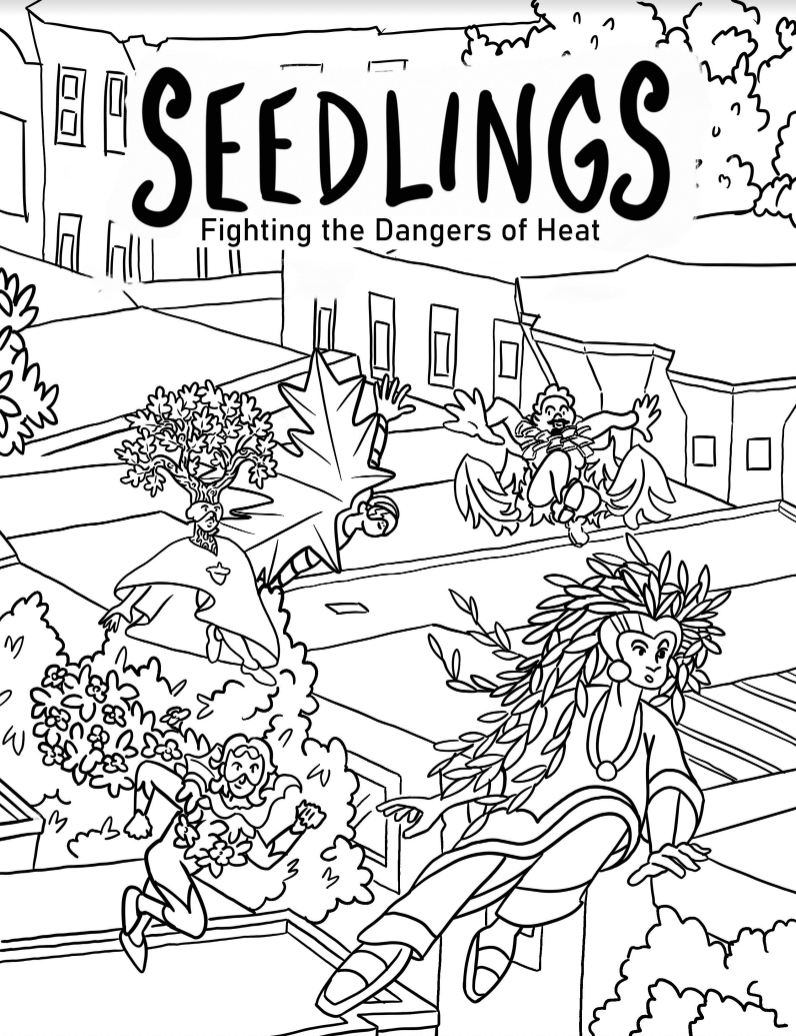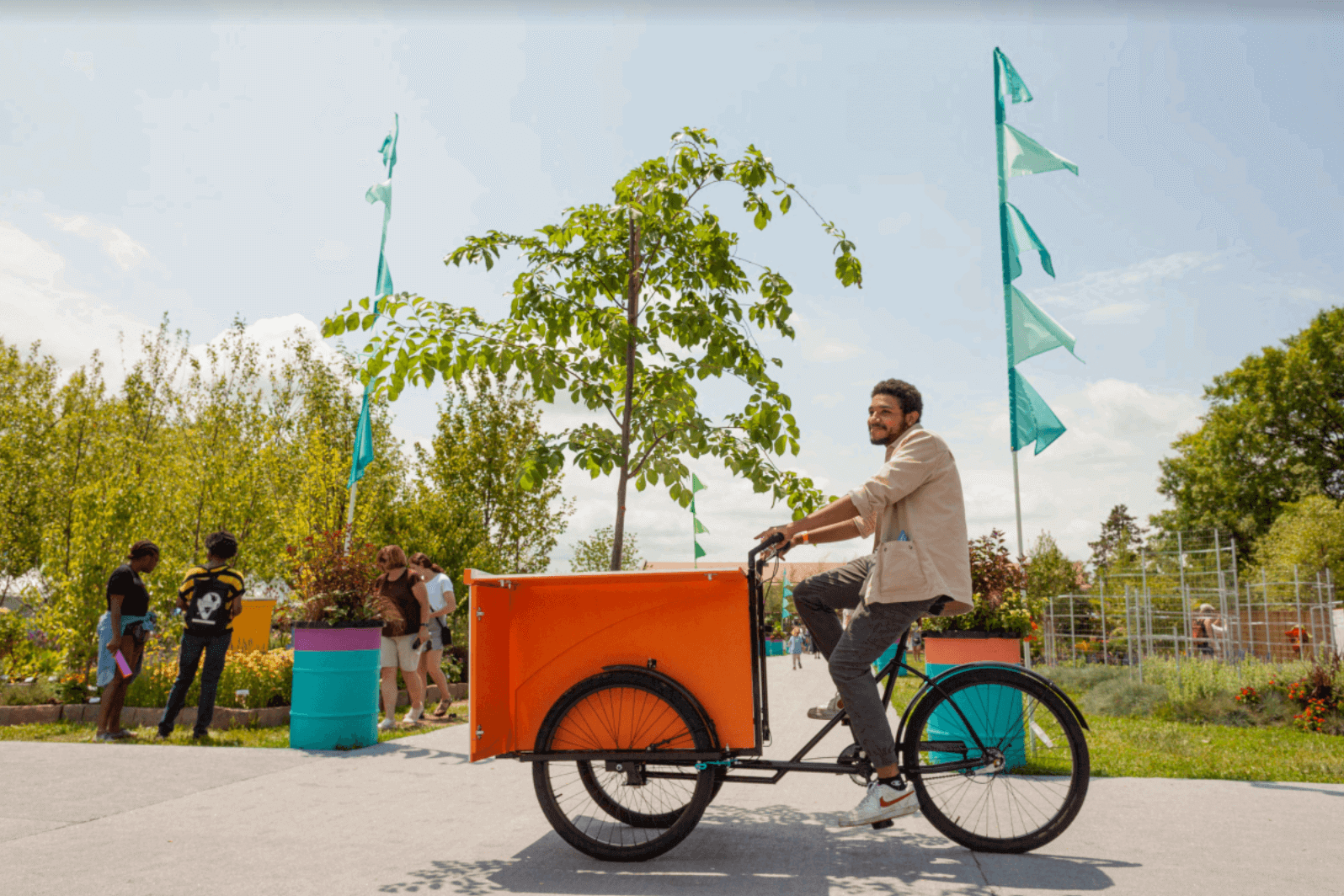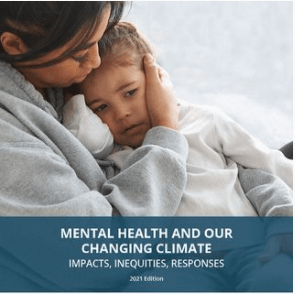Arts, Parks, and Climate Resilient Communities
This post is part of a Mental Health Awareness Month blog series that highlights “Closer Look” perspectives from the 2021 edition of Mental Health and Our Changing Climate. This is a reprint from the report.
Arts, Parks, and Climate Resilient Communities
According to NOAA, this summer’s temperatures exceeded that of the 1936 Dust Bowl (2021). As temperatures continue to rise, we will continue to see the effects of extreme heat and disasters on community and individual health. Yet, in developing solutions, community members are often left out of the conversation around climate change.

In Philadelphia, The Trust for Public Land (TPL) and their partners aim to change that with “Heat Response”. TPL, environmental artist Eve Mosher, and teams of local artists, are partnering to create public art that reflects local community voices in answering the question: “Why should we care about climate change and what can we do about it?” Together artists and community members are finding creative ways to capture narratives of climate change. They are proposing unique, arts-based-solutions in and around parks that speak to the urgency and gravity of the crisis. While exposure to nature is linked to improved mental health, arts and culture activities are linked to addressing collective trauma and reducing social isolation.
Heat Response has created dozens of fun and engaging activities for communities across Philadelphia. On June 16, the team unveiled the book, Seedlings, at a North Philadelphia neighborhood block party. Seedlings is narrated and illustrated to engage youth in conversations around climate change. Students have since participated in citywide clean-ups, painted art, and co-designed community art installations.

“Climate change impacts every aspect of residents’ and community members’ lives, from the air we breathe each day to the stress and trauma from extreme weather. Placing community voices at the center of the climate conversation and building awareness and ties between residents through the arts in green space builds more resilient communities”, says Owen Franklin, Pennsylvania State Director at TPL.
Connected communities are creating the grassroots movement toward climate resilience. In South Philly, organizers hosted virtual town halls where youth participants brainstormed heat interventions, leading to the co-design of a new vegetated awning that could provide shade along Philadelphia’s classic rowhomes.

Each Saturday morning in Lanier Park, community organizers host drop-in meetings where residents discuss potential heat interventions in the community. Children created drawings of magical cooling structures that served as a jumping-off point for future interventions including building a youth-designed shade structure, planting trees, and installing benches in Lanier Park.
Through the process and resultant outcomes envisioned by residents, communities can become ready to tackle the adaptive challenge of climate change and its effects on mental health and well-being.
You can find more information about how bringing the arts and public space together can support health equity at: https://bit.ly/toolkit_health_arts_ parks_equity
Read the report, HERE. And share on Social!
About ecoAmerica
ecoAmerica builds institutional leadership, public support, and political resolve for climate solutions in the United States. We help national mainstream organizations elevate their climate leadership, providing them strategy, tools and resources to: demonstrate visible climate leadership, empower climate literacy, engage all constituents, and build collective action and advocacy. We help our partners transform into national climate leaders who inspire others on solutions. ecoAmerica.org
Want the convenience of getting ecoAmerica’s newsletter and blog in your inbox? Subscribe today!
Join ecoAmerica in the call for more ambitious and just climate action. Sign the MomentUs statement today.
